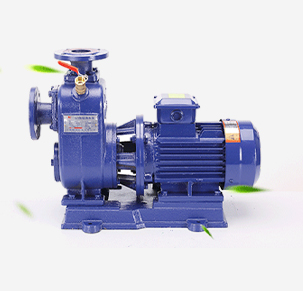English
- Afrikaans
- Albanian
- Amharic
- Arabic
- Armenian
- Azerbaijani
- Basque
- Belarusian
- Bengali
- Bosnian
- Bulgarian
- Catalan
- Cebuano
- Corsican
- Croatian
- Czech
- Danish
- Dutch
- English
- Esperanto
- Estonian
- Finnish
- French
- Frisian
- Galician
- Georgian
- German
- Greek
- Gujarati
- Haitian Creole
- hausa
- hawaiian
- Hebrew
- Hindi
- Miao
- Hungarian
- Icelandic
- igbo
- Indonesian
- irish
- Italian
- Japanese
- Javanese
- Kannada
- kazakh
- Khmer
- Rwandese
- Korean
- Kurdish
- Kyrgyz
- Lao
- Latin
- Latvian
- Lithuanian
- Luxembourgish
- Macedonian
- Malgashi
- Malay
- Malayalam
- Maltese
- Maori
- Marathi
- Mongolian
- Myanmar
- Nepali
- Norwegian
- Norwegian
- Occitan
- Pashto
- Persian
- Polish
- Portuguese
- Punjabi
- Romanian
- Russian
- Samoan
- Scottish Gaelic
- Serbian
- Sesotho
- Shona
- Sindhi
- Sinhala
- Slovak
- Slovenian
- Somali
- Spanish
- Sundanese
- Swahili
- Swedish
- Tagalog
- Tajik
- Tamil
- Tatar
- Telugu
- Thai
- Turkish
- Turkmen
- Ukrainian
- Urdu
- Uighur
- Uzbek
- Vietnamese
- Welsh
- Bantu
- Yiddish
- Yoruba
- Zulu
Telephone: +86 13120555503
Email: frank@cypump.com
Sep . 24, 2024 12:24 Back to list
Submersible Cutter Pump for Efficient Sewage Management and Wastewater Solutions
Submersible Sewage Cutter Pump A Comprehensive Overview
Submersible sewage cutter pumps are vital components in modern wastewater management systems. Designed to operate while fully submerged in sewage, these pumps tackle the challenges of moving wastewater from lower elevations to treatment facilities. With advancements in technology, these pumps have become more efficient, reliable, and capable of handling various sewage materials, including solids and debris that could hinder traditional pumping systems.
Key Features
One of the defining characteristics of submersible sewage cutter pumps is their unique cutting mechanism. These pumps are equipped with sharp, hardened blades that can slice through tough solids and fibrous materials found in sewage. This cutting action significantly reduces the size of the waste, allowing for easier transport through the piping system. The ability to handle solids up to a certain size means that blockages are less likely to occur, ensuring a smooth and efficient operation.
Additionally, submersible pumps are designed for energy efficiency. With benefits such as lower power consumption and reduced operational costs, these pumps are an environmentally friendly choice. Manufacturers often incorporate high-efficiency motors and advanced hydraulic designs, providing better performance while minimizing energy use.
Applications
Submersible sewage cutter pumps are widely used in various applications, including municipal wastewater treatment, industrial waste management, and sewage handling in residential areas. In municipal settings, they play a crucial role in transferring sewage from lift stations to treatment plants. In industrial contexts, these pumps handle effluents that contain various solid materials, ensuring compliance with environmental regulations.
submersible sewage cutter pump

The residential application of these pumps often involves scenarios where gravity drainage is not feasible. For instance, homes located in low-lying areas may require these pumps to move sewage away from the property. Their ability to operate submerged means they can be installed in basements, pits, or other areas where traditional pumps cannot function effectively.
Advantages
The advantages of using submersible sewage cutter pumps are manifold. First, they can operate at depths where traditional pumps can't reach, making them ideal for various terrains. Second, their submerged design minimizes noise, contributing to a quieter environment. Lastly, the durability of these pumps means they can often operate in harsh conditions, resisting corrosion and wear from abrasive materials.
Maintenance and Care
To maintain optimal performance, regular inspections and maintenance are crucial. Operators should monitor for wear on the cutting blades and check for any signs of blockage or contamination. Lubricating the motor bearings and ensuring proper electrical connections are also essential practices for longevity. Following the manufacturer's guidelines for routine maintenance can significantly extend the lifespan of these pumps.
Conclusion
In conclusion, submersible sewage cutter pumps are integral to effective wastewater management strategies. Their innovative design, efficiency, and ability to handle tough materials make them indispensable not just in industrial and municipal applications but also in residential plumbing solutions. As technology continues to evolve, these pumps will likely become even more efficient and reliable, further enhancing their role in safeguarding public health and the environment.
-
Horizontal Split Case Pump with GPT-4 Turbo | High Efficiency
NewsAug.01,2025
-
ISG Series Pipeline Pump - Chi Yuan Pumps | High Efficiency, Durable Design
NewsAug.01,2025
-
Advanced Flue Gas Desulfurization Pump with GPT-4 Turbo | Durable & Efficient
NewsJul.31,2025
-
ISG Series Vertical Pipeline Pump - Chi Yuan Pumps | Advanced Hydraulic Design&Durable Construction
NewsJul.31,2025
-
ISG Series Vertical Pipeline Pump - Chi Yuan Pumps | Energy Efficient & Low Noise
NewsJul.31,2025
-
pipeline pump - Chi Yuan Pumps Co., LTD.|High Efficiency&Low Noise
NewsJul.31,2025










